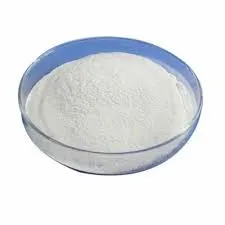
Oct . 30, 2024 17:40 Back to list
hydroxyethyl cellulose uses
The Versatile Applications of Hydroxyethyl Cellulose
Hydroxyethyl cellulose (HEC) is a non-ionic, water-soluble polymer derived from cellulose, commonly used in a variety of industries due to its excellent thickening, suspending, and binding properties. Its unique characteristics make it a vital ingredient in numerous applications ranging from pharmaceuticals to personal care products, construction materials, and food industries. Understanding the uses of HEC can shed light on its importance in everyday products and industrial applications.
The Versatile Applications of Hydroxyethyl Cellulose
In personal care products, HEC is a common ingredient in creams, lotions, and shampoos. It enhances the texture and flow of products, making them easier to apply and more appealing to consumers. As a thickener, it contributes to the stability of emulsions, preventing the separation of oil and water. Additionally, hydroxyethyl cellulose is used in hair styling products, providing a flexible hold, enabling styles to maintain their shape without becoming stiff or crunchy. Its ability to retain moisture also adds emollient properties to skin care formulations, benefiting individuals with dry or sensitive skin.
hydroxyethyl cellulose uses

Within the construction industry, HEC plays a critical role as a thickening and water-retention agent in various construction materials such as mortars, plasters, and tile adhesives. By improving the workability of these materials, it allows for better application and finishing, helping to ensure a smoother surface and enhanced adhesion. The water-retention properties of HEC help to prevent premature drying of the mortar or plaster, enabling better curing and improving the overall durability of the construction.
In the food industry, hydroxyethyl cellulose is used as a food additive known for its stabilizing and thickening properties. It can be found in sauces, dressings, and dairy products, where it helps maintain texture and consistency. By controlling viscosity, HEC contributes to the overall quality of food products, making them more palatable while optimizing their shelf life. Its water-binding capabilities also aid in moisture retention, which is particularly beneficial for processed foods.
Moreover, HEC is used in industrial applications such as paints and coatings, where it improves the viscosity and texture, leading to better application properties and enhanced performance. It's also used in various formulations to create a stable, uniform consistency, which is essential for product quality and reliability.
In conclusion, hydroxyethyl cellulose is a highly versatile ingredient that plays an essential role across numerous sectors. Its unique properties make it a critical component in products ranging from pharmaceuticals and personal care items to industrial materials and food applications. As industries continue to innovate, the applications of HEC are likely to expand, solidifying its place as a valuable resource in both consumer and industrial products.
-
Versatile Hpmc Uses in Different Industries
NewsJun.19,2025
-
Redispersible Powder's Role in Enhancing Durability of Construction Products
NewsJun.19,2025
-
Hydroxyethyl Cellulose Applications Driving Green Industrial Processes
NewsJun.19,2025
-
Exploring Different Redispersible Polymer Powder
NewsJun.19,2025
-
Choosing the Right Mortar Bonding Agent
NewsJun.19,2025
-
Applications and Significance of China Hpmc in Modern Industries
NewsJun.19,2025







